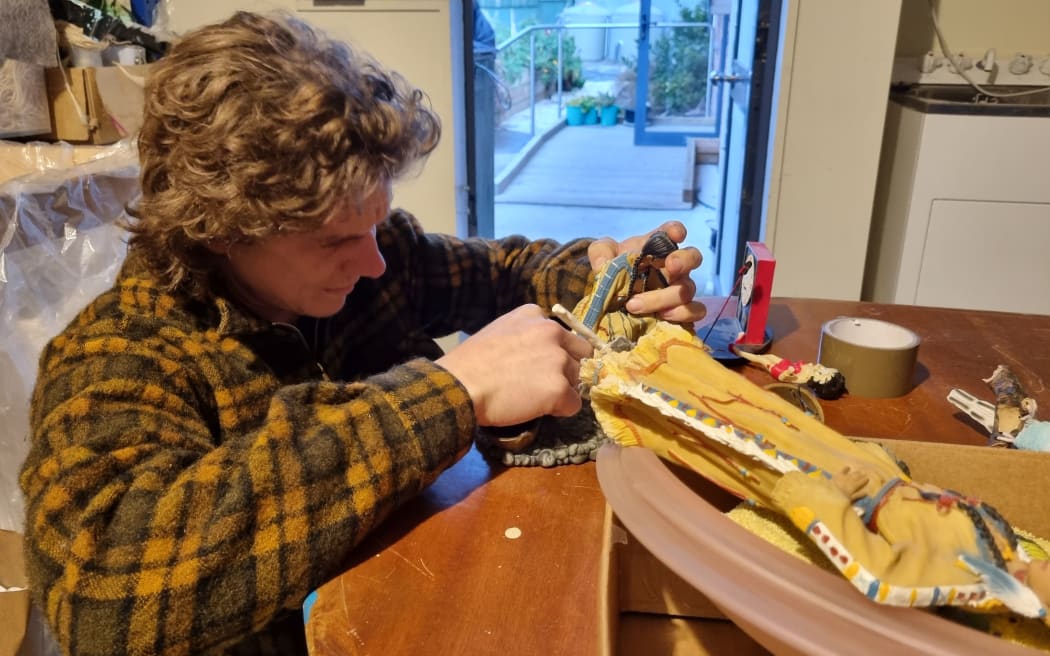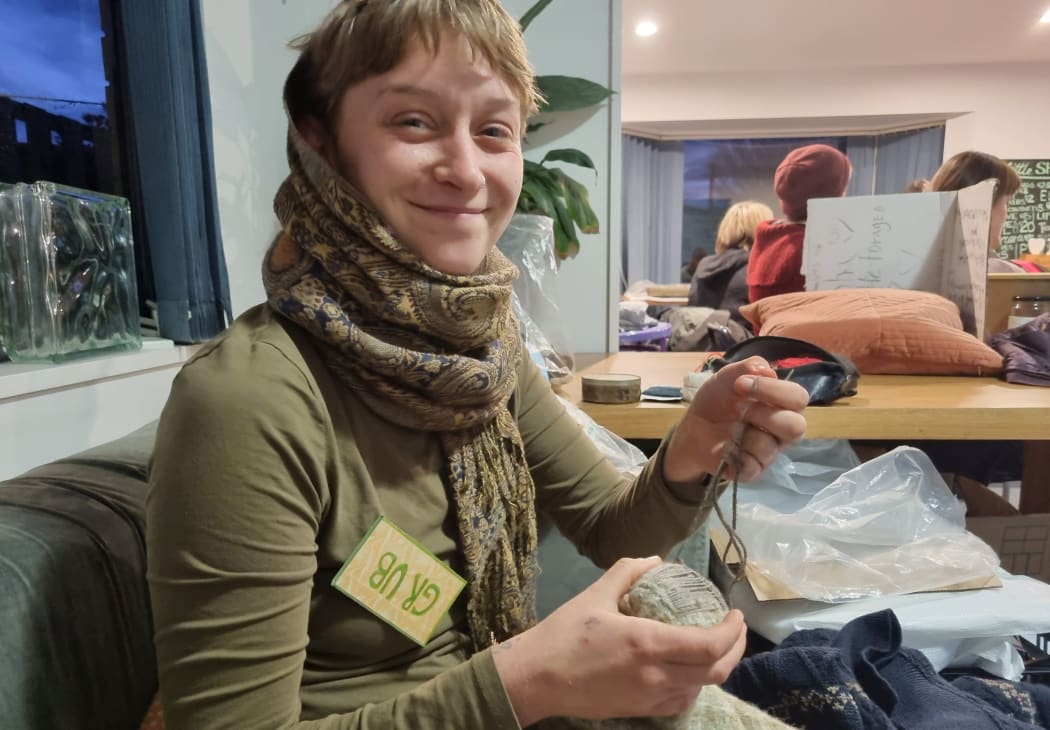A group in Christchurch is plotting a revolution against throwaway culture and wants to help people maintain and fix their broken belongings.
Grub McMasters repairs a hole in a rug as part of work undertaken by Repair Revolution.
Photo: RNZ / Rachel Graham
The Repair Revolution meets once a month in a community house in Richmond, with people bringing in an array of items broken down, worn out or missing bits to try and breathe life into them again.
In one room electricians Alan Liefting and Rudy Kremers were endeavouring to find out what was wrong with a toaster that was no longer working.
The cause of the toaster’s problems was proving difficult to pin down, and Liefting said that uncertainty about what needed to be done and how long it would take to fix, was often what put people off even trying.
That was the beauty of the Repair Revolution, he said.
“Because we’ve got volunteers giving time, that expensive part, the labour portion of the repairs is no longer there … We get parts donated and that sort of thing. So thing like parts are quite a minor part of a repair. So that’s the beauty of what we’ve got here, is that people can see if something is able to be repaired.
“For instance, if you bring it into our work, we have a $45 minimum fee to have a look at something. And that could be $45 going towards a $200 appliance, so you can see why people aren’t repairing things.”

Thomas Gilchrist, a regular volunteer at the Repair Revolution meetings, tries to repair a broken ornament.
Photo: RNZ / Rachel Graham
In another corner Grub McMasters was darning a rug with a hole in it.
She learnt how to darn after coming along to Repair Revolution and had begun sharing the skill with others.
“I think that’s the wonderful thing about the Repair Revolution. It’s not just you bring your items in to get fixed. You can also like learn how to fix your own things and I really enjoy the empowerment people get here.”
Another volunteer, Vincent Rade, was looking at a broken computer mouse.
He said such fixes were not too difficult, but often people felt too intimidated to give it a go.
“It’s important to be careful and to do it slowly with the process, and not use too much strength because it’s plastic and you can easily break the plastic. But if you use the right tools at the right moment, and you check online for tutorials because we have a lot of resources online that help us to repair this stuff.”
One of the organisers was Sarah Pritchett.
She said common things being brought in included household appliances, clothes in need of repair and knives needing sharpening, but she said they would give pretty much anything that could be brought in a go.
“Someone brought in an oven one night and we had two registered electricians working on it. It took them pretty much all night, it was a massive job but it got fixed. I was bit shocked when I saw them coming in.”
The main aim was to try and divert as much as possible from the landfills and to give people the confidence that they could try and fix things, instead of just binning them and buying something new, she said.
Push for Right to Repair
Pritchett said Repair Cafe Aotearoa, which they are part of, was pushing for New Zealand to get a Right to Repair.
“If we had a global right to repair measures, we’d be able to have spare parts for everything available for a longer period of time [and] manuals available to everyone.
“There wouldn’t be the thing that you have to be an authorised repairer to get something repaired. So any repairer could repair things. There could be things like a requirement for durability and repairability labelling which they have in France.”
Pritchett said there were signs that the Right to Repair could be incorporated into the Waste Minimisation Act which was being reviewed, but she’d like to see something more comprehensive and standalone.
The next event in Christchurch will be on 20 September from 5pm-7pm at 46a Vogel Street Richmond.





















Discussion about this post